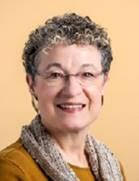
Private Practice Dietitian specializing in Eating Disorders & Psychotherapist in Philadelphia, PA
Author of Counseling Tips for Nutrition Therapists Series
Motivational Interviewing Trainer
http://www.mollykellogg.com/
How did you get started in your career?
I entered the field of nutrition for several reasons. First, I loved science. Learning about biological processes was fascinating to me, and it seemed my interest would be unending. Nutrition science combined the hard sciences of biochemistry and physiology with the everyday practice of feeding ourselves. I wanted to make a difference in people’s lives and knew that in nutrition I could do that.
After almost a decade working with pregnant women and families with young children, I started a private practice. I imagined helping clients to eat healthfully and to manage chronic conditions through diet. Very early in my practice, I became frustrated. I could tell my clients what to do, but most either did not change at all or adopted new behaviors only briefly before returning to old habits. Some clients described feeling helpless and compelled to eat even though they knew it was “wrong.” When I worked with my first few clients with eating disorders, I finally could not deny that I, too, was helpless and needed more skills.
All my friends in counseling professions advised me to go to the Bryn Mawr School of Social Work. I became a licensed social worker in 1994 and worked as an outpatient psychotherapist for an agency for eight years while maintaining my part-time private practice in nutrition. Three years of gestalt therapy training deepened my professionalism and confidence. Since 2003, in my private practice I provide psychotherapy for a range of concerns and nutrition counseling for those recovering from an eating disorder.
My nutrition practice grew and became more rewarding as I integrated what I learned in the mental health field. I began to wonder whether any of my nutrition colleagues were as frustrated as I had been and whether I could pass on some of my knowledge to them. In early 2003, I felt inspired to write a brief article on self-disclosure for nutrition colleagues. It was a topic that, as a psychotherapist, I had always found compelling. I e-mailed it to a dozen or so local dietitians. They liked it, and I found myself interested in another topic and another and another. Soon the list of ideas for Counseling Tips for Nutrition Therapists was growing faster than I could write them. More and more nutrition professionals asked to be added to the mailing list, and in the spring of 2005, I transferred the list to an automated E-zine system. I still post one every month, and the list of ideas keeps growing. As of 2019, 11,000 health professionals receive the Tips series. Once I reached 25 Tips, I compiled them into the Counseling Tips for Nutrition Therapists Practice Workbook, and I have now published three books in the series. In the last few years, I have added training workshops and professional supervision for nutrition professionals to my work. My Counseling Intensive two-day Workshop travels the country.
What advice would you give to someone new to the field?
Connect, connect and connect some more! Don’t be shy about introducing yourself to everyone in your area who works with eating disorders. Ask if there is a local networking group or even a supervision group you could join. Attend local and national conferences and network.
Ask for help. Work with eating disorders is challenging and expecting to do it alone is unwise. Even when you are more experienced you will do your best work when in a close-knit team with other professionals. When you are new to the field, it is best to have a mentor or supervisor in your discipline. (i.e. if you are a dietitian, look for an experienced RD to supervise you with your first cases.)
Stay connected. Experiment with which professional organizations support you best. If you are an RD, join at least the BHN Practice Group of ADA and IFEDD. Sign up for some e-mail listservs. They can be a place to turn with obscure questions and for referrals for your clients who move to other states.
